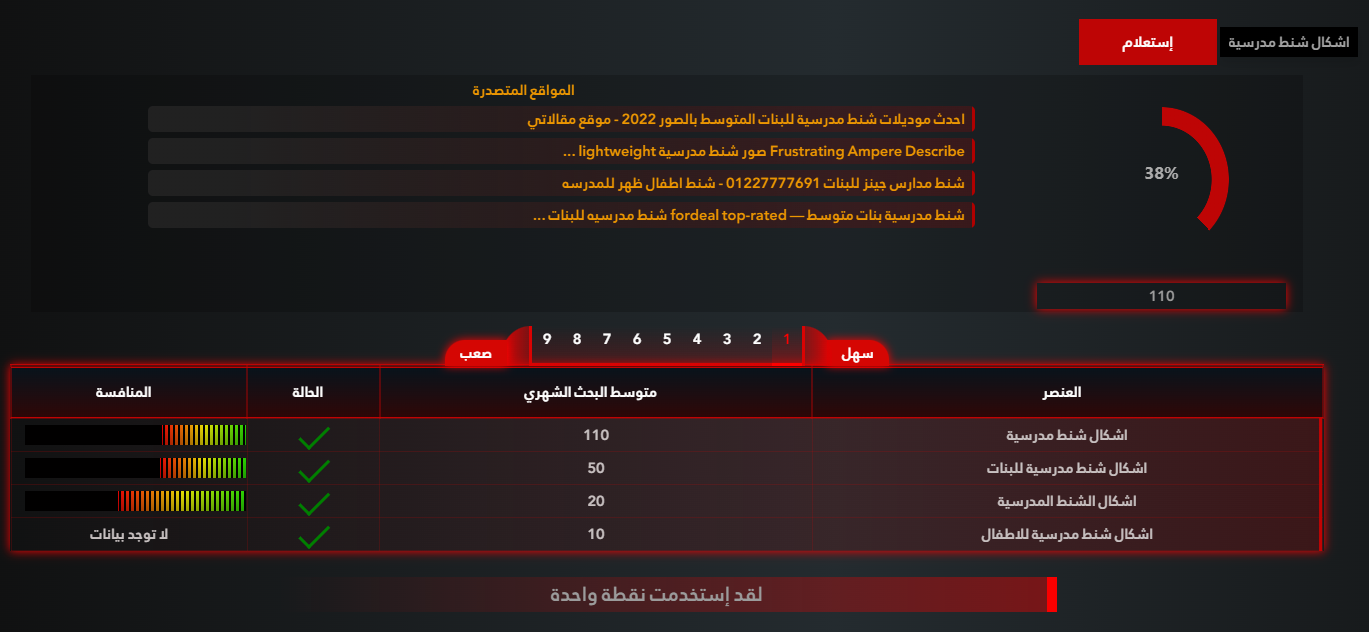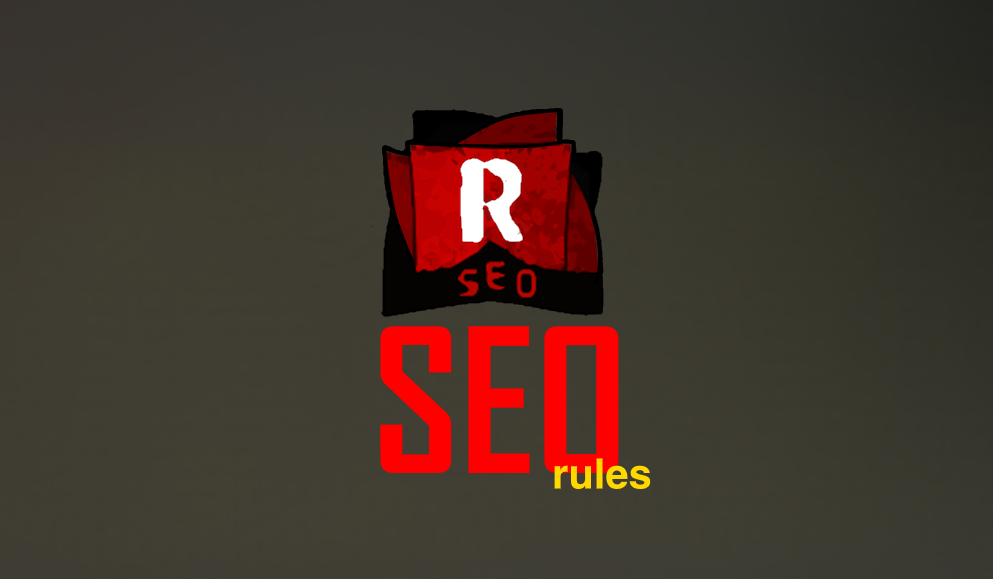- What are the Top SEO rules?
- how can I follow the rules of search engine optimization?
- is My Website appear in search engines?
- Why is My Website Not Showing in search engines?
- what is short-tail keywords
- When do I must use short tail keywords?
- When do I use long tail keywords?
- What are the repetition rates of keywords in the article?
- Top SEO rules for creating Headlines
- Where does the page title appear in the search engine?

In the beginning, since you searched for Top SEO rules, you often have a website, blog, or even a YouTube channel and you want to know the secrets of your competitors in higher ranks than you and lead them in the search results, and you came to the right place, here you will know with us what are the Top SEO rules in detail and how to follow them and what follows These are the mistakes that most bloggers make
What are the Top SEO rules?
Top SEO rules: a set of educational texts, controls and standards, and you can feel yourself by visiting during your crawler, you will find the following: -
- provide clear information in the topic or article
- The ability to navigate between the pages of my site is easy
- Remains in the show site for a long period of the show
- make it easier for search engines as you made it easier for the visitor to understand the content by following the rules of SEO
how can I follow the rules of search engine optimization?
The full rules of SEO cannot be told in just one topic, but after you leave this article you will be prepared to make your site or content eligible to appear in different search engines.
Review a full report, review recommendations, and avoid mistakes that we will tell you about, follow the top rules of SEO
is My Website appear in search engines?
In the beginning, do a quick test, if you find your website there , thats good , and if you do not find any specific pages from your website in the search results that mean there is a problem and there is not following the rules and standards of SEO
now open google and search for "site:yourdomain.com" and see what you will find
Why is My Website Not Showing in search engines?
There are so many factors can effect your website showing in search engines , and following the rules of SEO one of them ,but here is the most important of which are: -
- Your website is just created and google did not crawl to your pages yet.
- Other websites do not link to your site (no one gaves you a backlink).
- The design and configuration of your website makes it difficult for Google to understand what your pages contain.
- An error occurred (software - security).
- You provided a robots.txt file or some other way that never allow google to crawl your website.
Why does my site is not the first result in search results?
The reason for that is so of complex but we are going to tell you the most factors that can be effective: -
- Sites that rank higher in search results offer unique content about you.
- Your competitors websites get high and big trust from search engines.
- The competitors are following the rules of SEO more than you.
- Your content is unique but , how much information does it contain?
- Your content is unique with sufficient information and search engine cannot understand what it contain , because you did not follow the rules of SEO
- A manual action has been taken to restrict your sites visibility on search engines
- You have high spam score .
What are the keywords?
Keywords are the words that you want your article or page to rank for when people type them in search engines and keywords can be one word or two and here are called short-tailed keywords and may be more than that and we they called long-tailed keywords
what is short-tail keywords
Short-tailed keywords are words that are from one or two words and often the results of search engines in short-tailed keywords are harder than in long-tailed keywords due to the fact that search rates for short words are often higher than long-tailed words but they are not a rule
When do I must use short tail keywords?
We give you some cases when to use short-tail keywords
- When the competition for keywords is simple.
- When long-tailed keywords containing the short-tailed word have been targeted more than once in many other topics.
what is long tail keywords
Long-tailed keywords are keywords that are made up of three words or more and are often easier to target and rank for than short-tailed keywords, and often have lower Difficulty of competition than short-tailed keywords but its not a rule either.
When do I use long tail keywords?
Here are some cases where you must use long tail keywords
- When the competition for the short keywords is tough, go for the longer words.
- When the trust of search engines for my site is not great yet.
- When you target a keyword that is very specialized in a particular topic.
How to choose the right keywords?
You can choose the right keywords according to what we mentioned above and determine the length of the keyword after you know the search rates on the keyword and the difficulty of competition, there are many tools that help you to know the actual search volume of each keyword and how difficult it is to compete for it, and also suggest you ideas for related keywords with a longer tail, R-seo offers you the possibility of finding different keywords and ideas and search rates on them as well as the difficulty of competition as shown in the picture.

What are the repetition rates of keywords in the article?
There is no specific rule except that the repetition of keywords should be done only in case they are needed and be in the context of the topic, not in a random way nor a stuffing of keywords in the article, according to some SEO experts such as Neil Patel about targeting keywords.
Top SEO rules for creating Headlines
Following the rules of headlines SEO when creating new content is extremely important and is one of the factors that strongly affect the appearance of your site as well as bringing visitors to it and moving them from one topic to another within your site
The title of the page is must be same as this picture have some conditions and rules.

Where does the page title appear in the search engine?
The title of the page appears in a clear space and in a larger font than the rest of the text in the search results, so it is a key attraction for the user in making him want to click on the page.
How to improve the visibility of headlines in search engines?
You have to observe the following rules to enjoy a good appearance of the titles of your topics and bring visitors to your website, and remember that writing the title is an important part that affects the appearance of your site and pages, here are some of those rules: -
What You Should Follow To Improve Titles SEO
- The title must be of an appropriate length to appear in full.
- Choose text that accurately describes what the page contains.
- Insert keywords inside the title or at least related words (lsi keywords).
- Try to include numbers in the headings that add a stronger meaning to the title.
- Try to use punches that urge the visitor to move on the title such as (the most important - best - secrets - reasons) .
- Use non-duplicate and different titles for each page.
- Use abbreviated titles and accurately express what the page contains.
What You Should Avoid For Improving Titles SEO
- Avoid writing a title that has nothing to do with the content.
- using a title you used on another page.
- using random or ambiguous headings such as "page 1" or "new topic".
- using too long headlines to describe what the article contains.
- stuffing unnecessary keywords in the headline.
Note: The search engine may display a different address from the one you selected if you select a very long address or if it may block part of the title and this is what you do not want of course you have chosen the most appropriate address right?
Top SEO rules of pages meta Description
The Top SEO rules for the meta description of the article are extremely important and many bloggers neglect them by arguing that popular search engines such as Google and Bing replace the text according to the search process used.
To understand the importance of the meta description or the meta description of the article, you must first find out what the meta description "meta description" is and why Google sometimes replaces it.
What is the meta description of the article or page?
The meta description of an article is a text used to explain the summary of what the article or page contains and must contain what prompts the visitor to open your page or article you and no one else.
Why does Google choose a meta description that I did not choose?
Google and Bing and other search engines often choose meta texts for your page other than the one you submitted by specifying it because Google sees that this part of the article specifically is what the user is looking for, but it can be from your point of view that this text is not the best text that describes your content so you have to put a descriptive text that describes everything that the article contains accurately and concisely so that Google does not change it as much as possible if you follow the rules of SEO for the meta description.
How to write an SEO-optimized meta description?
In each part of your page you must follow those rules called Top SEO rules and one of the important parts of the page that do not appear often within the article but appear in the search results is the description of the article or page and you have to follow some rules and instructions when writing the description of the article and avoid some mistakes that many make .
Recommendations to follow when improving SEO of meta description
- The description of the article should actually describe what the article contains in a nutshell.
- Try to include your target keywords or related words "lsi keywords".
- The description should contain words that encourage the visitor to click on the article to benefit from what
- you described to him.The description of the article or page should be as short as possible to get it fully displayed .
What to avoid when writing an article or page description
- Avoid the length of the meta description of the article or page exceeding the allowed number or it will not fully displayed .
- Avoid stuffing keywords in a way that does not correspond to the context of the speech , you will not deceive search engines.
- Beware of using meta description text that does not agree with what your article contains.

